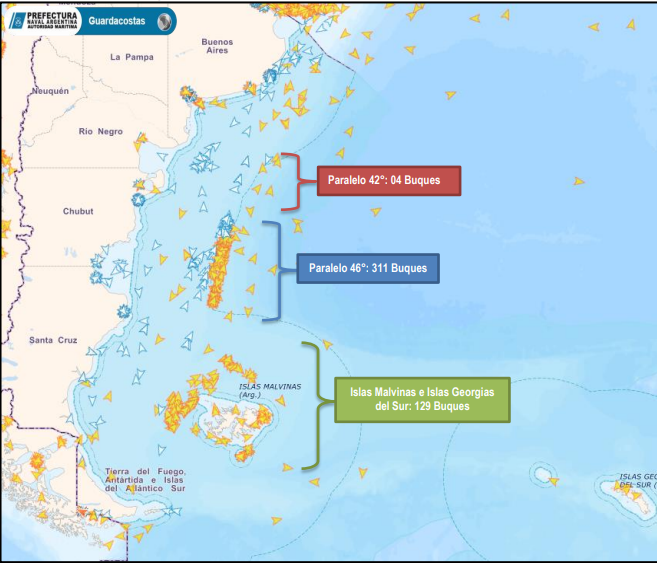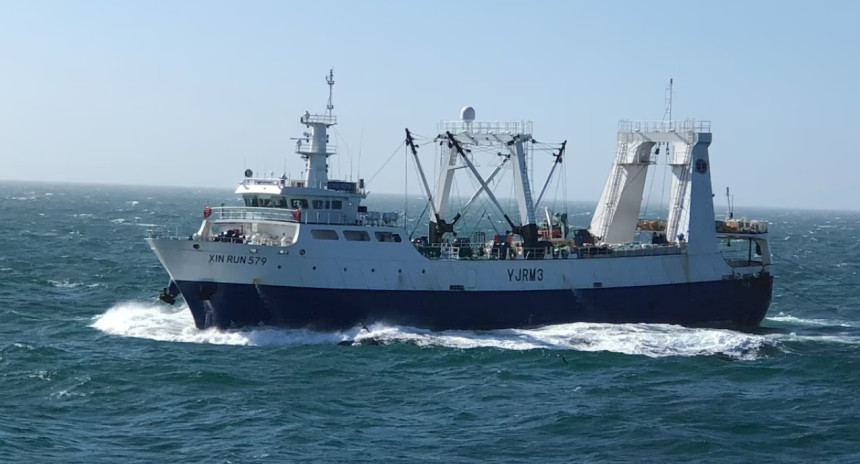El disfraz de las banderas de conveniencia, lo que significa incorporar a sus barcos el pabellón de otras nacional; ha cobrado fuerza en el último tiempo, y plantea serias preocupaciones sobre la economía del sector, la preservación ambiental y la soberanía marítima del país.
Recientemente, aeronaves y embarcaciones de la Armada Argentina detectaron un alarmante número de barcos, alcanzando hasta 380 embarcaciones, la mayoría de ellas de origen chino operando al borde de las aguas territoriales argentinas.

Entre estos buques, se identificaron 13 utilizando banderas de países como Vanuatu y Camerún, de Oceanía y África, teniendo en cuenta que en todos los casos los mandos al frente de los buques eran de origen asiático.
Un informe del Círculo de Políticas Ambientales detalla el caso del pesquero Xinrun 579, que porta bandera de Vanuatu. A pesar de operar en aguas jurisdiccionales argentinas y realizar actividades de pesca sin autorización, el barco rechazó la solicitud de las autoridades argentinas de ser abordado para una inspección, reanudando su rumbo hacia aguas internacionales.
Investigaciones posteriores han revelado que, en realidad, la empresa dueña del Xinrun 579 es Xinrun Ocean Vanuatu Co., una compañía de capitales chinos, evidenciando que la “bandera de Vanuatu” es únicamente una fachada.

Esta táctica de encubrimiento no sólo es indicativa de la falta de ética en las prácticas pesqueras, sino que también desafía la capacidad de los estados soberanos para controlar y proteger sus recursos naturales.
Paralelamente, empresas chinas están adquiriendo la flota pesquera argentina y algunos informes indican que ya son dueños de más de la mitad de las embarcaciones de calamar del país.
Desde Puerto Belgrano, entre diciembre y enero pasado, partieron buques de captura de calamar con nombres chinos como Hu Yu 962, Hu Shun Yu 06, Hu Yu 961 y Hu Shun Yu 07. Sin embargo, las embarcaciones portan la bandera nacional argentina.
FUENTE:






